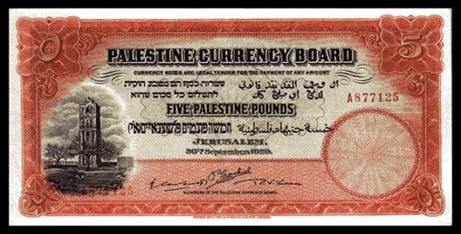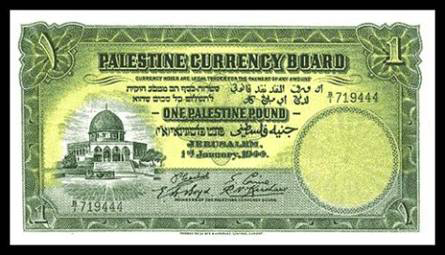Partition and The Law
In front of Congress in January 1918, Woodrow Wilson (1856-1924) the 28th president of the United States, proposed a 14-point Plan for a Programme of Peace, as WW1 was still raging. He wanted to promote the idea for a League of Nations which would avoid the repetition of such was in the future. Wilson had campaigned hard for its establisment, and harder for the US to ratify it. On 28 June 1919, 44 nations signed the Covenant to establish the League of Nations, but the US was not amongst them. Despite Wilson's national campaigns to get the US to join the League, Republicans in Congress opposed it. For his efforts, he was awarded the Nobel Peace Prize in October of that year.
Two points in his programme related to the territories which were placed under the Mandates systems. Point 12 specifically stated: “The Turkish portion of the Ottoman Empire [now Turkey] should be assured a secure sovereignty….the other nationalities which are under Turkish rule, should be assured an undoubted security of life and an absolutely unmolested opportunity of autonomous developments…”.
In his February 1918 address to Congress, President Wilson stated that: “Peoples and provinces are not to be bartered about from sovereignty to sovereignty as if they were chattels and pawns in a game. National aspirations must be respected; people may be dominated and governed ONLY by their consent. Self-determination is not a mere phrase. It is an imperative principle of action, which statesmen will henceforth ignore at their own peril”.
In July of the same year, he formulated his vision further: “The settlement of every question, whether of territory, of sovereignty, of economic arrangement or of political relationship, [must be] upon the basis of the free acceptance of that settlement by the people immediately concerned and not upon the basis of the material interest or advantage of any other nation or people which may desire a different settlement for the sake of its own exterior influence or mastery”.
On the other side of the planet where the booty is the recious, the Middle East, Britain and France scanned the landscape and planned to share this booty. As WWI was coming to an end and the Allies were sensing victory there against the Ottoman Empire, promises and counter promises were made by Britain's leaders to the Arabs to reward the latter for their hep in defeating the Ottomans. The famous pledges by Sir Henry McMahon to Sherif Hussein of Mecca known as The MacMahon-Hussein Correspondence (14 July 1915-30 January 1916). These documents were fully exmined for the first time by George Antonius in his seminal book "The Arab Awakening" written in 1939 two years before this notable historian died. Anyone interested in this chapter of British interigue towards the Arabs should read this book.
After the end of WW1, at the Paris Peace Conference of 1919 (PPC), the principles of nationality and self-determination of peoples was advocated by President Wilson with two dozen other world leaders marking the beginning of the end of Colonialism. It proclaimed that no new territories should be annexed by the victors, and that such territories should be administered solely for the benefit of their indigenous people and be placed under the trusteeship of the mandatories acting on behalf of the League of Nations, until the true wishes of the inhabitants of those territories could be ascertained.
The PPC decided to recognise the territories under the mandatory system as “provisionally independent nations subject to the rendering of administrative advice and assistance by a Mandatory until such time as they are able to stand by themselves”. It follows from this phrase that the mandatory mission is not intended to be prolonged indefinitely, but only until the peoples under tutelage are capable of managing their own affairs.
All these declarations turned out to be not worth the paper they were written on.
Class A mandates (Syria, Palestine, Iraq, Lebanon and Transjordan) recognised the peoples of these territories to have reached advanced stage of development and their independence could be recognised once they have achieved a capacity to govern themselves. It is universally and legally accepted that sovereignty in the mandatory territories lie in the inhabitants of the territory in question (Article 22 of the Covenant of The League of Nations).
The League of Nations Covenant defines the Class A Mandates in the following manner:
"Certain communities formerly belonging to the Turkish Empire have reached a stage of development where their existence as independent nations can be provisionally recognized subject to the rendering of administrative advice and assistance by a Mandatory until such time as they are able to stand alone".
Palestine was Class A Mandated Territory. In Palestine, citizenship status for those living in the country was governed by The Palestine Citizenship Order-in-Council of 24 July 1925 which came into force on 1 August 1925. It regulated Palestine citizenship for the duration of the Mandate. All subjects habitually resident in Palestine on 1 August 1925 became Palestine citizens. Citizenship could also be acquired by birth. Persons born to Palestinian fathers (no matter where that birth took place) acquired Palestine citizenship. Any other person could also acquire citizenship by means of naturalization, subject only to the length of period of residency.
Under International Law, Palestine, throughout the Mandatory period, was to receive administrative assistance and advice from the Mandatory to help it set up its own government. Already, Palestine had its fixed boundaries, its government institutions, its own currency and, in 1934, its national anthem.


Palestine’s legal position under International Law was clear: The United Kingdom was mandated Palestine in one piece. Article 5 of the Mandate required the Mandatory Power (the UK) to ensure that "no Palestine territory shall be ceded or leased to, or in any way, placed under the control of the government of any foreign power". Under Article 22 of the Covenant of the League of Nations, the people of Palestine were to emerge as a fully independent nation at the end of the Mandate. Hence, Palestine was considered a provisionally independent state receiving administrative assistance and advice from the Mandatory. The sovereignty was vested in the people of Palestine. It was a dormant sovereignty exercised by the Mandatory power on behalf of the people of Palestine.
Article 28 of the Mandate stipulated that at the end of the Mandate, the territory of Palestine would pass on to the control of ‘the Government of Palestine’. The termination of the Mandate on 15 May 1948 was to signal the birth of a free and sovereign Palestine in fulfilment of Paragraph 4 of Article 22 of the Covenant of the League of Nations. It was supposed to pave the way for the establishment of an independent and sovereign government in Palestine without the intervention of either the United Nations or any other foreign government for that matter.
It was under the Treaty of Lausanne in 1923 that Turkey finally renounced its administration of the Middle East territories after nearly 500 years of occupation. We repeat until the world listens, that Britain was the Mandatory power in Palestine and the guardian and the trustee of Palestine. Its duty was to guarantee the interest and well-being of the country’s inhabitants until the termination of the Mandate and the assumption by Palestine of its independence as a sovereign nation. When that happens, the newly independent nation would then be admitted to the League of Nations. This was the case with Iraq, Lebanon and Syria. They became sovereign nations. Indeed, this was Britain’s intention in Palestine when it issued its White Paper in 1939.
All Class A Mandates achieved full independence: But that was not to be the fate of Palestine.
The UN had no right in 1947 to even debate the idea of partitioning any country, to dispose of any part of it, deprive the majority of its indigenous population of their territory or to transfer it to the exclusive use of illegal immigrants. The General Assembly had no right or jurisdiction to destroy the territorial integrity of Palestine or to propose its partition.
The General Assembly Resolution 181 (the Partition Plan for Palestine) was passed as a recommendation and not as a binding resolution. It would have had to go to the Security Council for it to be binding. Here is what the UN Charter states on this point:
"Broadly speaking, while the General Assembly may discuss any international disputes or situations, it is the Security Council which recommends appropriate procedures or methods of adjustments or terms of settlement for the pacific settlement of disputes and takes preventive or enforecement measures with respet to threats to the peaces, breaches of the peace or acts of aggression".
Additionally, the purpose of GA Res181 was to create a process from the end of the Mandate which would lead to the division of Palestine into two states. As the Arab side rejected the Resolution, it could not have been implemented. It would have taken the full military force of the young UN to implement it. As history has shown, the Jewish gangs were implementing it by force.
The United Kingdom did not own Palestine and had no relationship whatsoever with it in 1916 when it agreed with Zionist leaders to issue the Balfour Declaration in November 1917. This Declaration remains illegal, invalid and inapplicable even though it was injected into the Mandate for Palestine through power politics and lobbying.
The International Law Digest defines a state as “ a people permanently occupying a fixed territory, bound together by common law, habits, and customs into one body politic, exercising, through the medium of organised government, independent sovereignty and control over all persons and things within its boundaries”. In the area labelled Israel today, the majority of the people, at the time of the Balfour Declaration and later when Palestine was partitioned in 1947, were indigenous Palestinians. In International Law, the territory of any state must belong to the people of that state. The possession of the territory must be a legitimate possession and could not have been acquired by war, conquest or through annexation.
BUT:
It was at the Paris Peace Conference that Chaim Weizman put forward Zionist claims to Palestine calling for the imposition of the Mandate over all of Palestine including areas up to the Litani River in Lebanon (to the north) and to the Hijaz Railway line which is well east of the Jordan River. He then famously declared his wishes for a Palestine to be “as Jewish as England is English”.
Article 1 of the 1933 Montevideo Convention states that an entity cannot be considered a state until it possess the following qualifications: a) A permanent population; b) A defined territory; c) A government; d) The capacity to enter into relations with other states. What existed in the so-called Jewish state in 1948 were illegal immigrants from Europe and Russia, and three Zionist terrorist organisations: the Irgun, the Hagana and the Stern gangs.
Despite this miscarriage of justice, this so-called State embarked on a massive military project to ensure the total and final expulsion of the Palestinian people from their historic homeland.
To achieve this objective, they had their Village Files ready.